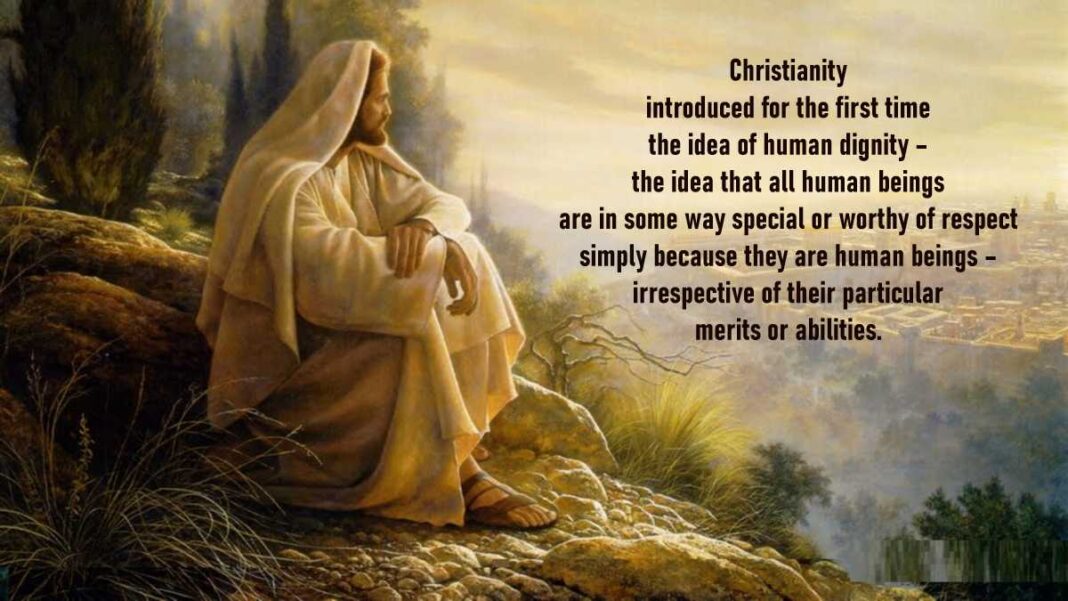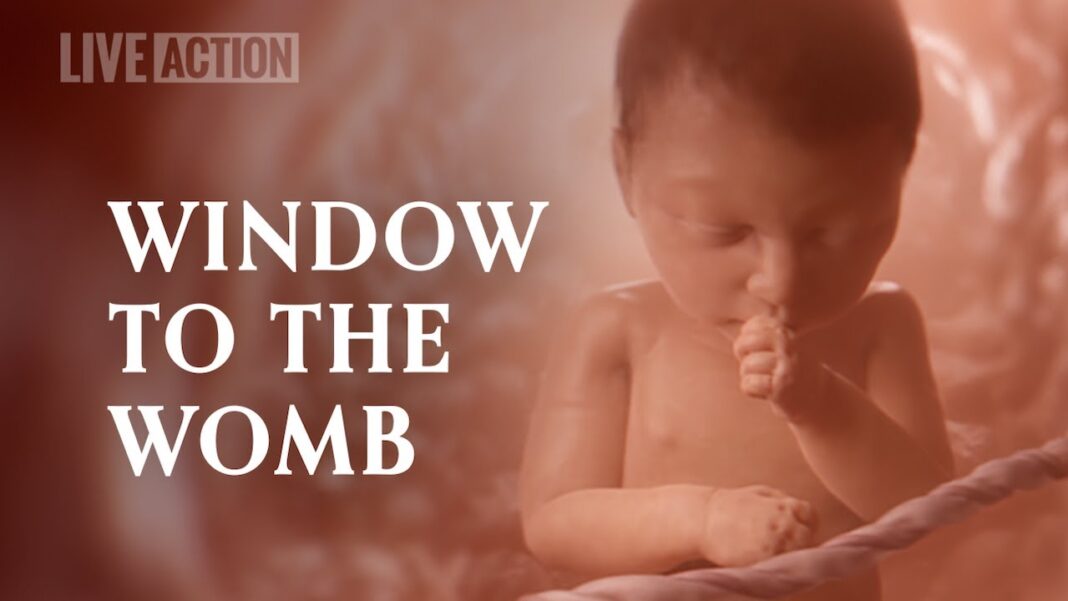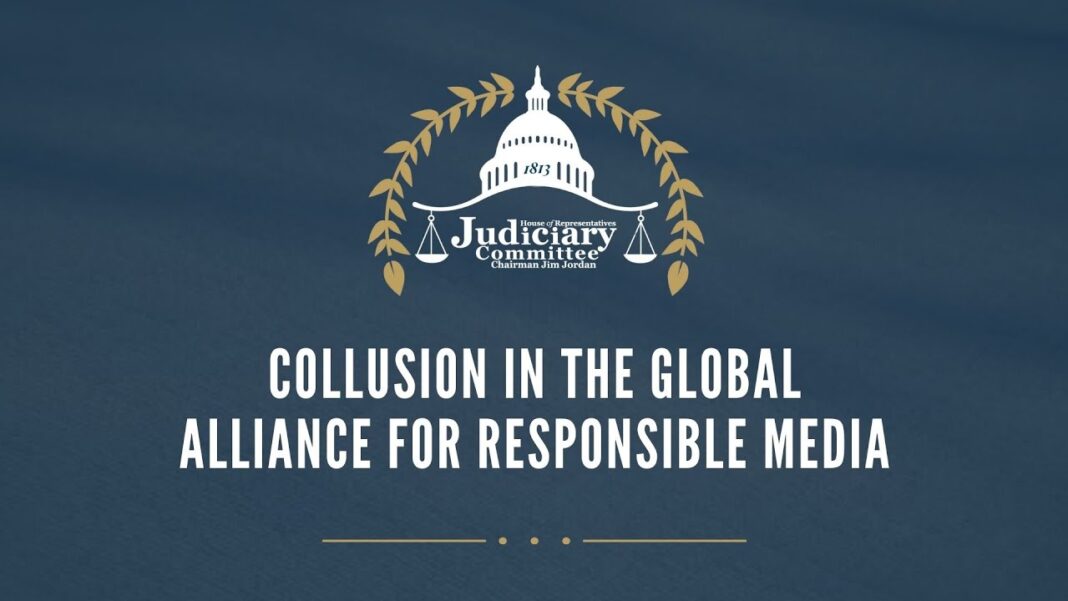“No power on this earth can destroy the thirst for human dignity.” – Nelson Mandela
Since the inception of Western civilization the concept of human dignity has been that value most cherished by those who live under its domain. And it is fitting that we hold Christianity responsible for this occurrence. As critical theorist Jürgen Habermas so eloquently put it:
“Egalitarian universalism, from which sprang the ideas of freedom…human rights and democracy, is the direct heir of the Judaic ethic of justice and the Christian ethic of love…To this day, there is no alternative to it…we continue to draw on the substance of this heritage…Everything else is just idle postmodern chatter.”
When Christianity enters a society, it provides something critical, something special – an understanding of the inherent value of human dignity as well as human rights and freedom which flow from it.
Over the last several decades, a growing number of Americans have abandoned their faith—usually Christianity—to join the ranks of the nonreligious. These “Nones” describe themselves as atheists, agnostics or “nothing in particular.” Some may shrug at this, but you don’t have to be religious to know that this shift doesn’t bode well for a nation founded on the precepts of freedom, natural rights and self-government.
For most of the 20th century, 70% of Americans belonged to a house of worship. But by 2020, Gallup found a mere 47% of Americans belonged to a church, mosque or synagogue.
According to several studies, Christianity is declining in America. A study by the Pew Research Center found that in 2022, 64% of Americans identified as Christian, down from 91% in 1976.
The “nones” who do not identify with any particular religion has grown significantly, with 28% of American adults identifying as “nones” in 2024, surpassing Catholics (23%) and Evangelical Protestants (24%). Pew projects that in 2070, Christians will likely make up less than half the US population.
This might not seem like a crisis, but our Founding Fathers would have disagreed. These men understood that sound self-government depended on morality and virtue, which, in turn, depended on religion. As George Washington stated in his Farewell Address:
“Of all the dispositions and habits which lead to political prosperity, religion and morality are indisputable supports.”
So, what happens if the research is accurate? What happens if Christianity continues its decline, and America loses the influence of Christianity which it has benefited from for almost a quarter century?
What happens to human dignity in America if Christianity recedes from its role in society? Christian human dignity is not founded on maximizing fairness or autonomy, but on the fact that all human beings are made free through natural law – not the whims of another human. If it becomes detached from that premise, then human dignity no longer makes sense.
Counterintuitive though it may seem, we owe a special thanks to a 19th century philosopher by the name of Nietzsche. Through his musings we learn what lies ahead if Christianity recedes from society. Nietzsche criticized Christianity as a “slave morality.” Christianity, he argued, is a morality that emerged from the resentment and envy of the weak towards the strong, and its values are designed to suppress individual creativity, freedom, and excellence.
Without realizing it, the “good” philosopher reveals something of critical advantage to us. He shows us what modern liberal secularism without the tempering influence of Christianity will look like. The real alternative to the Christian view of morality and worth (dignity) of the individual is not something warm and comfortable but something more invidious, more inhospitable. In his essay “The Greek State,” Nietzsche writes: “Such phantoms as the dignity of man, the dignity of labor, are the needy products of slavedom hiding from itself. . . . ‘Man in himself,’ the absolute man possesses neither dignity, nor rights, nor duties.”
Nietzsche inadvertently confesses that the concept of human dignity is integral to Christianity, critical to the revolt of the “slave morality” that toppled pagan religion and dramatically altered people’s views of the worth of human beings. Nietzsche was right: Christianity introduced for the first time the idea of human dignity – the idea that all human beings are in some way special or worthy of respect simply because they are human beings – irrespective of their particular merits or abilities.
Our own dignity today in America emanates from the Judeo-Christian tradition and the encounter between Christians and the secular world. But given what we know of the decline of Christianity in America, this dignity of ours is not something we may take for granted.
So, if human dignity is a Christian concept, what happens to it after Christianity – in a Post-Christian world?
With respect to this question there is hope. Some say there is good reason to suggest that the idea of inherent human dignity is not necessarily going away. Earlier the atheist philosopher, Jurgen Habermass, exhorted us to understand that:
“…individual morality of conscience, human rights and democracy, is the direct heir of the Judaic ethic of justice and the Christian ethic of love…To this day, there is no alternative to it…we continue to draw on the substance of this heritage. Everything else is just idle postmodern chatter.”
In his 2008 book The Meaning of the West: An Apologia for Secular Christianity, atheist Christian theologian Don Cupitt noted what is also historically incontrovertible:
“Nobody in the West can be wholly non-Christian. We cannot help continuing to be influenced by the old dreams…utopians, Martin Luther King, John Lennon, Jürgen Habermas…of a fully reconciled, free and open future society. Whether or not you personally think of yourself as being a Christian does not very much affect the extent to which Christianity goes on influencing your hopes and your dreams…You may call yourself a non-Christian, but the dreams you dream are still Christian dreams, and you continue to be part of the history of Christianity. That’s your fate. You may consider yourself secular, but the modern Western secular world is itself a Christian creation.”
Human Dignity in a Post-Christian World
In spite of the above benevolent declarations about the future of human dignity, we must also remain sanguine about the current state of affairs in America. Christianity, itself, appears to be receding from American society. Matthew Arnold’s poem “Dover Beach,” captures the depth of such loss. In the retreating action of the tide from the beach, he hears, he says, the sound of the sea as “the eternal note of sadness.” For Arnold this is the sound of the retreat of religion and faith.
Unfortunately, the ghost of Nietzsche is still with us today. An increasingly secular America is not ushering in a rational, neutral, and indifferent regime, but rather a dangerous, revitalized form of atheism, agnosticism or pure apathy. Indeed, irrationalism is on full display in America.
The malevolence of secularism is visible across our country. Abortion and euthanasia are new forms of self indulgence or worse population control; transhumanism and transgenderism reflect humankind’s embrace of postmodern relativism where the lines blur between what constitutes man and woman. And then there is AI, Artificial Intelligence, increasingly supplanting human artifice – a “Prometheus” bearing gifts of alleged knowledge to humanity – to be exalted as a 21st century “godlike” entity. This is Nietzsche’s future – we must not let it become ours.
America must not permit Christianity to recede from its role in society and with it the demise of our dignity, our rights and our freedom. There is work to be done – let it commence.








